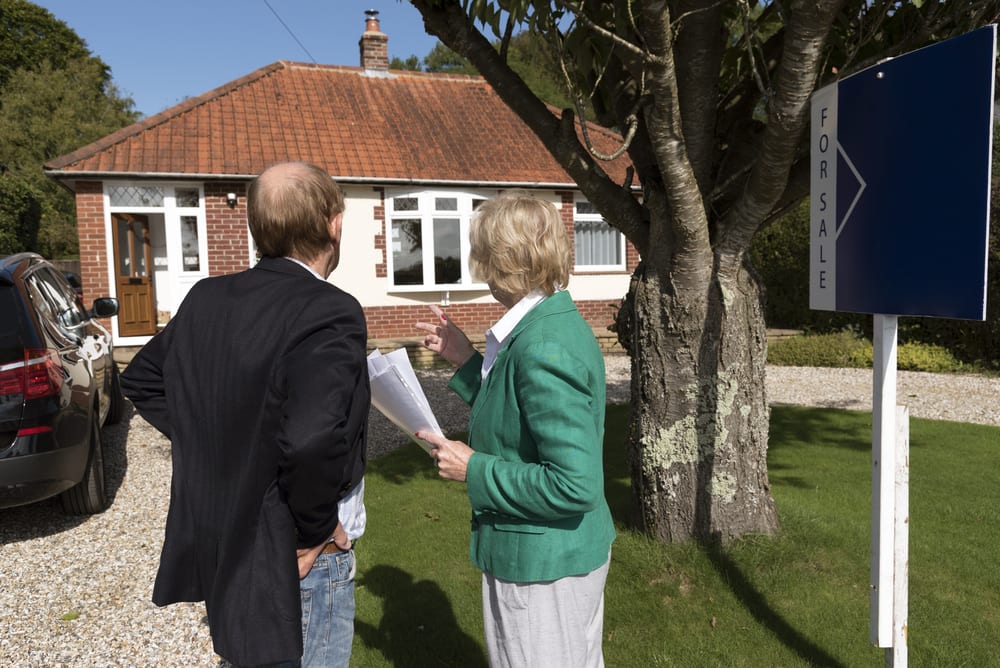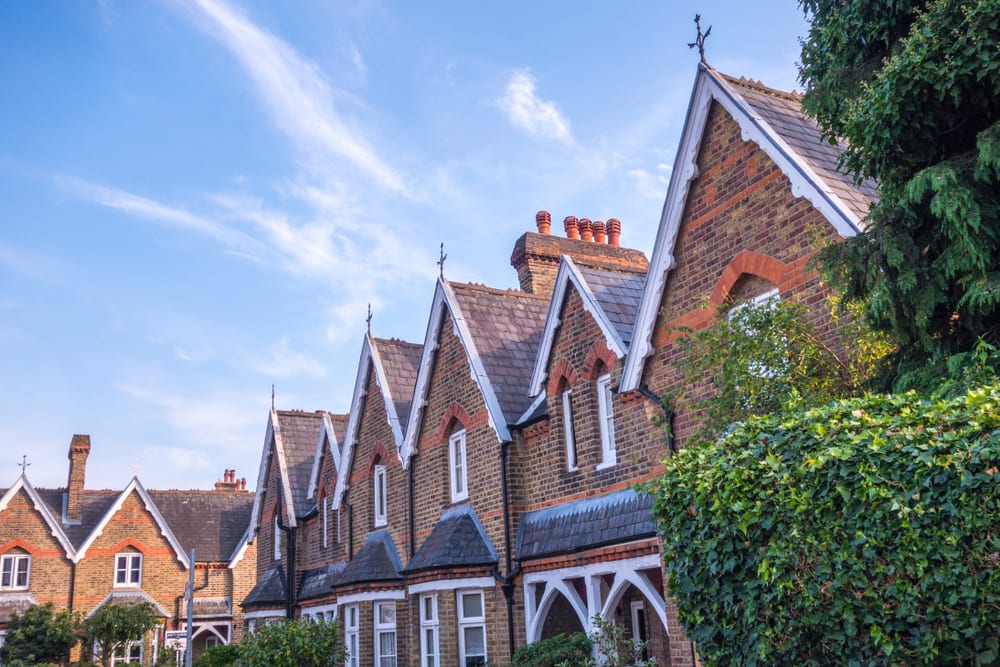Introduction
Buying a house in the UK is one of the biggest investments you will ever make, and it’s important that you have all the information available to ensure that your purchase is as safe and secure as possible. One way of doing this is by having a building survey conducted on the property before you commit to buying. Surveys are designed to protect both buyers and sellers by providing an accurate assessment of any potential problems with a property, including structural issues, dampness or other hazards that can affect its value. By conducting a thorough survey prior to purchase, buyers can be sure they are investing in a safe and sound home.
Why is a Survey Necessary?

source: pinterest.com
A survey is necessary to identify any potential problems with a property before purchase, as this will help buyers make an informed decision and ensure they are getting the most value for their money. By having a survey conducted, buyers can be made aware of any structural issues or other hazards that could affect the value of the property. This means they can factor in repair and maintenance costs when budgeting for the purchase. Additionally, surveys provide peace of mind by helping to guarantee that any future repairs are identified quickly and dealt with efficiently, saving time and money in the long run.
It’s important to note that not all surveys are created equal; different types offer different levels of detail depending on how comprehensive you need it to be. Basic surveys generally focus on surface level issues such as dampness or asbestos, while more expensive ‘structural’ or ‘full homebuyer’ reports include detailed information about walls, ceilings and floors as well as electrical wiring and plumbing systems. If there is anything specific about your desired property that you would like further details on then it’s worth paying extra for a more thorough report – especially if you suspect something may not be right with it!
Types of Surveys

source: pinterest.com
The Home Buyer Survey is the most popular type of survey for homebuyers. It provides a broad overview of the condition of a property and identifies any urgent or significant issues that need to be investigated further. This report also includes an insurance valuation and advice on repairs, which can help buyers decide if they are willing to proceed with the purchase. The survey is suitable for conventional properties in good condition, but doesn’t provide as much detailed information on more complex buildings such as those built before 1919 or listed buildings.
A Building Survey is a comprehensive assessment of all aspects of a property, providing detailed reports on everything from structure and construction materials to wiring, plumbing systems, drainage and heating installations. It will identify any potential problems with these areas as well as advise buyers on how best to maintain their new home once it has been purchased. A Building Survey may take longer than other surveys due its thorough nature; however this extra cost could save money in the long run by highlighting any potential problems upfront so they can be addressed quickly by appropriate professionals.
Choosing the Right Surveyor

source: pinterest.com
When buying a property, it is important to choose the right surveyor who can provide an accurate assessment of the condition of the house. The Royal Institution of Chartered Surveyors (RICS) is an independent professional body that sets standards for surveying and offers accreditation to surveyors who meet their strict criteria. Choosing a RICS-accredited surveyor will give you peace of mind that your chosen professional is qualified and experienced in conducting surveys on residential properties.
Before selecting any surveyor, it’s important to check their credentials and experience in order to ensure they are best suited for the job. Ask about qualifications, membership and references from previous clients as well as how long they have been operating in this field; these factors will all help you determine if they are reliable or not. Additionally, make sure that any potential surveyors carry out surveys which follow RICS guidelines – this ensures consistency across different reports and guarantees quality results.
It’s also wise to get advice from friends or family members who have recently gone through the process of buying a home, so you can compare notes on different types of surveys available, costs involved and experiences with particular professionals. Taking advice from those close to you can be invaluable when making such a big decision – after all, it’s better safe than sorry!
Organizing Your Survey

source: pinterest.com
Once you have chosen the type of survey you require and found an RICS-accredited surveyor, it’s time to get quotes on fees and organize the appointment. It is important to shop around for a competitive price as different surveyors may charge different rates for their services. You should also check that any quote includes all costs associated with the job, such as travel expenses or additional reports if they are needed. Additionally, make sure that your chosen professional has adequate insurance cover in case of accidental damage during their visit.
When organizing the survey appointment itself it’s essential to ensure that everyone involved knows exactly when and where it will take place, so there are no delays or misunderstandings on the day. Provide your surveyor with as much information about the property prior to their visit, so they can be prepared for what awaits them – this could include photos, floor plans or details about recent renovations or structural changes made by previous owners. Once an appointment has been arranged, be sure to confirm it either through email or letter – this will provide evidence of confirmation should something go wrong later down the line!
Using the Results of a Survey

source: pinterest.com
Once a survey has been completed, the results can be used to inform any decisions made about purchasing a property. It’s important for buyers to carefully consider all aspects of the report before making an offer on the home and decide whether they are still interested in pursuing it. In some cases, potential issues that have been identified by the survey may warrant further investigation or even require repairs prior to purchase – this could lead buyers to negotiate a lower price with the seller if these costs need to be shouldered by them.
If any urgent or significant problems have been highlighted in a survey then it is wise for buyers to take action as soon as possible. It is important that reports from qualified professionals are sought out such as structural engineers or architects who can advise what needs doing in order for repairs and renovations to work correctly. Once advice has been received, purchasers should contact their solicitor and discuss how best this information should be taken into account when negotiating an appropriate price for the home before committing financially.
It is also worth taking into consideration any major works which might not necessarily appear in surveys but could affect future maintenance costs down line; examples include replacing roofs, central heating systems and plumbing fixtures – all of which can incur substantial expenses over time. Buyers can use estimates from local contractors to factor these costs into their budget when deciding upon an offer figure for their desired property.
In summary, surveys provide invaluable insight into properties so it’s essential that buyers use them wisely when considering buying a UK home; understanding exactly what is being reported will help ensure you make an informed decision about your investment while avoiding financial pitfalls later down the line!
Conclusion

source: pinterest.com
In conclusion, surveys can provide invaluable information when it comes to buying a property in the UK. They allow buyers to make informed decisions about their investment based on comprehensive reports of the condition and structure of the home. Understanding what type of survey is required for each individual situation, as well as considering any extra works which might not be covered in these reports but could incur additional costs in the future, is key to ensuring that purchasing a new home does not become a financial burden later down the line.
As a buyer, it’s important to familiarize yourself with your options before making an offer on any property. Researching different types of surveys available and selecting an RICS-accredited surveyor will help ensure you get detailed advice from professionals who are qualified and experienced in this field. Additionally, obtaining quotes from potential surveyors, so you can compare prices will help ensure competitive fees are paid out accordingly. Once all necessary information has been collected and understood by both parties involved then purchasers should contact their solicitor to discuss how best this data should be taken into account when negotiating an appropriate price for the desired property before committing financially – doing this will save time and money further down the line!


